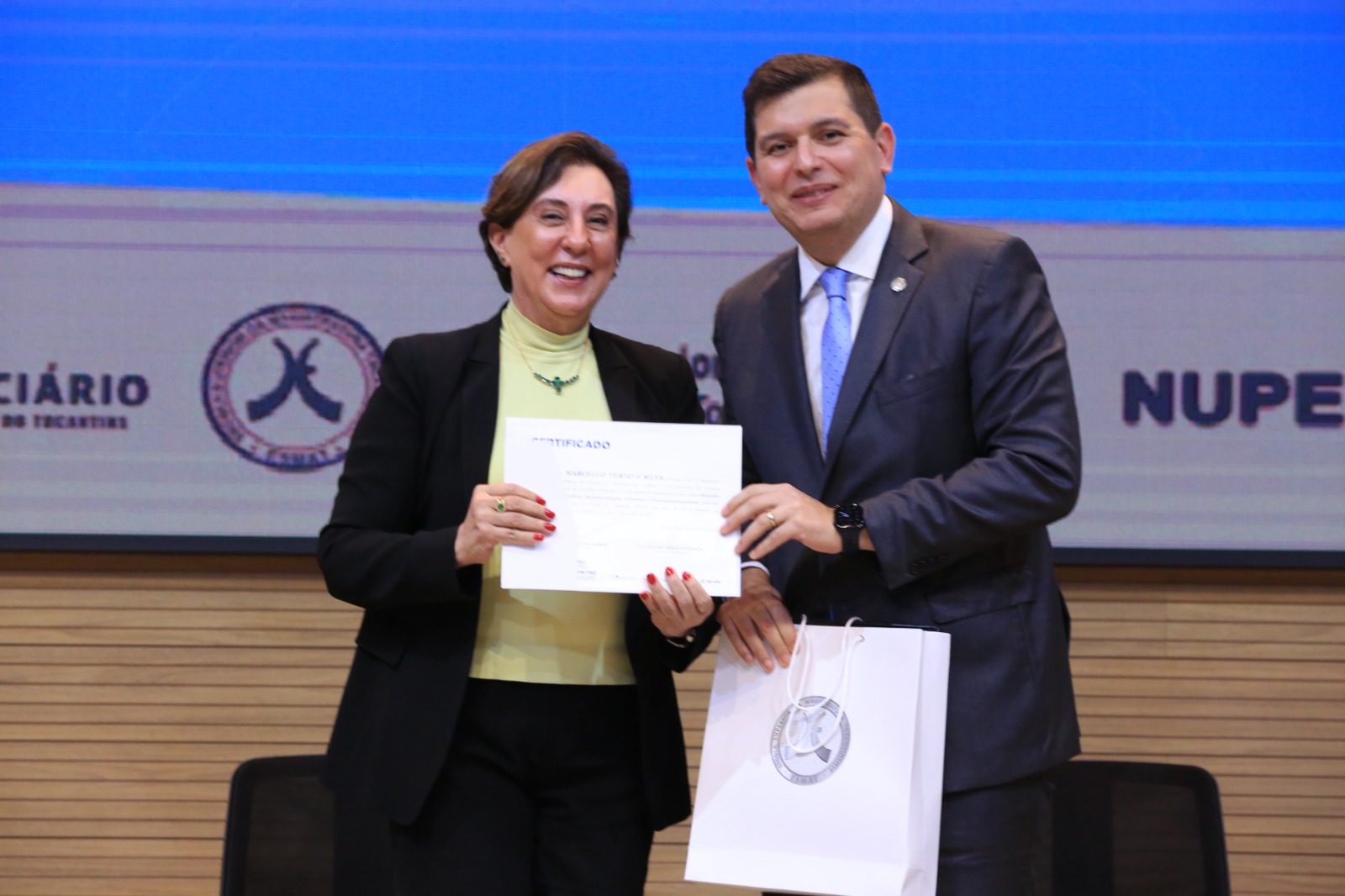
Coordinated by Justice Angela Issa Haonat, the fourth lecture of the VI Seminar on Public Policies for Adequate Treatment of Conflicts was given by Counselor Marcello Terto e Silva of the National Council of Justice (CNJ) and included presentations on adequate conflict solutions, de-judicialization, citizenship, and inter-institutionality.
In his speech, the counselor, besides commenting on relevant historical aspects, introduced his theme by presenting particularities related to the socioeconomic analysis of the 20th and 21st centuries.
“The purpose here is to bring some of the experience resulting from our work at the National Council of Justice and from there offer space for some reflections on how the action of CNJ in the development of public policies can contribute to the pacification of conflict, the reduction of the judicial system, of litigiousness in Brazil (…). Ultimately, as I deal with judicial public policies, I came to talk about public management, judicial management, judicial intelligence, based on all the instruments and tools available in the National Justice System. We need to learn how we treat data and offer structured data to the justice system as a whole, not only to the self-centered judiciary, in order to offer a safer environment that is devoted towards racial and intelligent solutions,” he explained.
The penultimate lecture of the day discussed notes on the appropriate treatment of conflicts in claims arising from over-indebtedness. The presentation was coordinated by Judge Márcio Soares da Cunha and given by Judge Alexandre Abreu from the Court of Justice of the State of Maranhão.
In his speech, Alexandre commented on the commitment of the Court of Justice of the State of Tocantins (TJTO) regarding handling of conflicts.
"We are already in the sixth edition of the seminar, which means that the Court of Justice of the State of Tocantins has a deep respect and continuous investment so that conciliation and mediation are functioning instruments, that serve society, and this makes us very proud, due to the fact that we are historical battlers", he said.
In the last lecture of the day, Daniela Monteiro Gabbay, lawyer, PhD, from the University of the State of São Paulo, with expertise in Dispute Resolution, Mediation and Arbitration, approached the good practices and the challenges faced in mediation in the Judiciary. The panel was coordinated by attorney Priscilla Madruga Ribeiro.
Concluding the event, the following people participated in the round table with the theme on "Cejuscaf and the Role of the Judiciary for Social and Economic Development": Justice Angela Issa Haonat, Judge Silvana Maria Parfieniuk, Judge Wellington Magalhães, and State Attorney Ana Flávia Ferreira Cavalcante.




